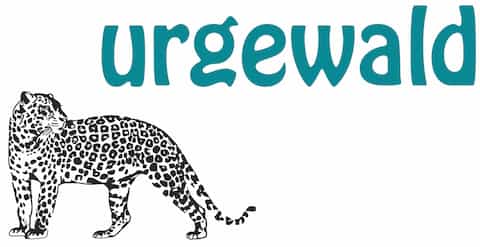Why GCEL is Special
Urgewald created the Global Coal Exit List to give financial institutions a tool to move coal out of their portfolios. GCEL covers the entire thermal coal value chain from coal exploration and mining, to coal power production and coal gasification. Today, it is the most comprehensive public database on the global coal industry.
GCEL currently has over 600 users from the finance industry. It has helped shape the coal policies of many financial institutions across the globe. Urgewald uses 3 criteria to determine whether companies are placed on GCEL.
The database includes companies that:
- are expanding their coal business
- have a coal revenue or a coal share of power production of at least 10%
- have at least 5 GW of coal-fired capacity or 10 million tons of annual coal production
GCEL is updated annually. The GCEL currently provides coal-related data for almost 3000 companies, comprised of about 1500 parent companies and their subsidiaries. These companies represent more than 90% of global thermal coal production and global coal-fired capacity. GCEL covers the whole coal universe.
What Makes GCEL Unique?
Comprehensive Coverage
Most commercial data providers only consider revenue from coal sales or coal-based electricity. In contrast, GCEL also includes revenue streams from coal transport and logistics companies, coal plant manufacturers, providers of engineering, procurement, construction (EPC) services to the coal industry, coal-to-gas producers, and more. Urgewald’s research thus provides a much more accurate assessment of companies’ coal-related business.
Open Access
GCEL is free, transparent and publicly available. All interested parties can access and use the database. And, we specifically invite companies to notify us of any errors they might find.
Forward-Looking Divestment
GCEL identifies companies that are still expanding their coal business. These are companies that are either developing new coal mines, or new coal power plants, or building new infrastructure such as coal export terminals or coal railroad lines.
Inclusive Data
In addition to researching publicly listed companies, Urgewald also researches private companies. Data on these companies is usually hard to find, but GCEL makes it accessible. This makes the database particularly relevant for banks and insurers.
GCEL Success Stories
Investors that collectively manage US$ 20 trillion in assets are already using GCEL to screen coal companies out of their portfolios. The Norwegian Government Pension Fund and some of the biggest insurance companies of Europe, e.g. AXA and Generali, were among the first users of GCEL. At present, almost 300 banks, pension funds, investors, asset managers and insurance companies worldwide are using GCEL to screen their portfolios.
3 Use Cases by Financial Authorities
Financial agencies and regulatory authorities use GCEL to measure the exposure of financial institutions to the coal industry, to screen green funds for coal investments, and to identify coal financing.
The European Insurance and Occupational Pensions Authority (EIOPA), listed the exposure to GCEL companies as one out of 4 ESG related risks in their new Institutions for occupational retirement provision (IORPS) Risk Dashboard. The Risk Dashboard will be updated quarterly.
Since 2020, the French financial regulatory authorities AMF and ACPR have been using GCEL to undertake their annual assessment on climate targets. The French supervisory authorities published their 4th report on the climate commitments of French market participants using both GCEL and GOGEL data.
In May 2024, the Science Based Targets initiative (SBTi), the world’s leading standard setter for climate targets, published its revised “Financial Institutions’ Near-Team Criteria”. The document outlines specific requirements, which FIs have to adhere to when submitting near-term targets to be approved by SBTi. Coal companies are defined as all companies on GCEL or as companies with ≥10% revenue from the coal value chain.
